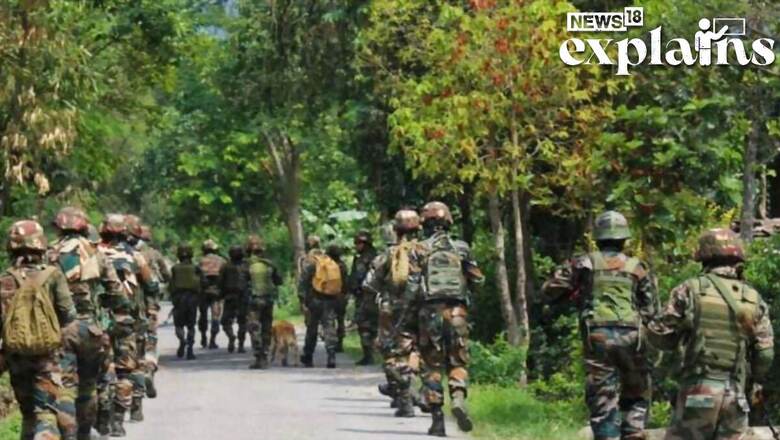
views
The Armed Forces (Special Powers) Act or AFSPA has been extended in four districts of Assam for six more months, the Assam Police recently announced.
DGP Gyanendra Pratap Singh said the ‘disturbed area’ tag has been withdrawn from the ‘disturbed area’ tag from October 1, while Dibrugarh, Tinsukia, Sivasagar and Charaideo will continue to have AFSPA in place.
The contentious act has also been extended by another six months in conflict-torn Manipur last week barring 19 police stations falling under the Imphal valley and an area bordering neighbouring Assam.
The act gives special powers to the military to maintain law and order in areas considered ‘disturbed’ by the government.
What is AFSPA?
The Armed Forces (Special Powers) Act was enacted in 1958 to bring under control what the government considered disturbed areas. It was brought in to combat against insurgency in parts of Northeast India after the Independence
As of now, areas under AFSPA include parts of Nagaland, Arunachal Pradesh, Assam, Manipur and Jammu and Kashmir. The AFSPA was first imposed in Assam in November 1990, and has been extended every six months since then after review by the state government.
AFSPA gives sweeping powers to the armed forces including the military to conduct operations, to open fire, even causing death; and arrest anyone without any prior warrant against any person in contravention to the law or carrying arms and ammunition.
It gives the security forces immunity from arrest and prosecution to the forces if they shoot someone dead. It also gives them powers to arrest individuals without warrants on the basis of “reasonable suspicion” and search premises without warrants.
It can be imposed by the Centre or the Governor of a state, on the state or parts of it, after these areas are declared “disturbed’’.
What are Disturbed Areas?
A disturbed area is declared by the government under Section 3 of the AFSPA Act, which empowers the governor of the state or the centre to issue an official notification regarding the disturbed area, following which the centre can send armed forces for civilian aid.
The government can declare an area ‘disturbed’ due to disputes between members of different religious, racial, language or regional groups. Once declared ‘disturbed’, the region has to maintain status quo for a minimum of three months, according to The Disturbed Areas (Special Courts) Act, 1976.
AFSPA was first implemented in the Northeast and then in Punjab. It was repealed from Punjab, Meghalaya, Tripura and Mizoram.


















Comments
0 comment